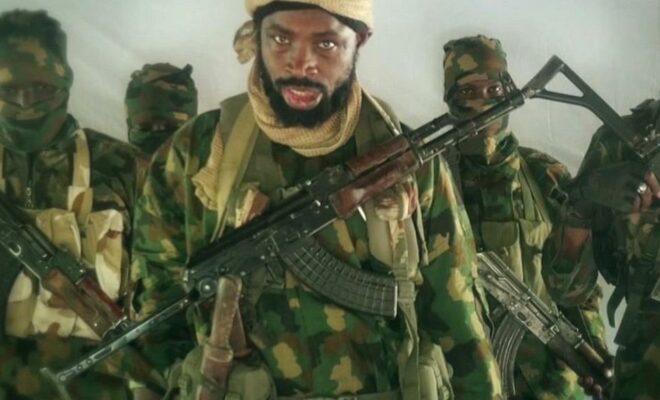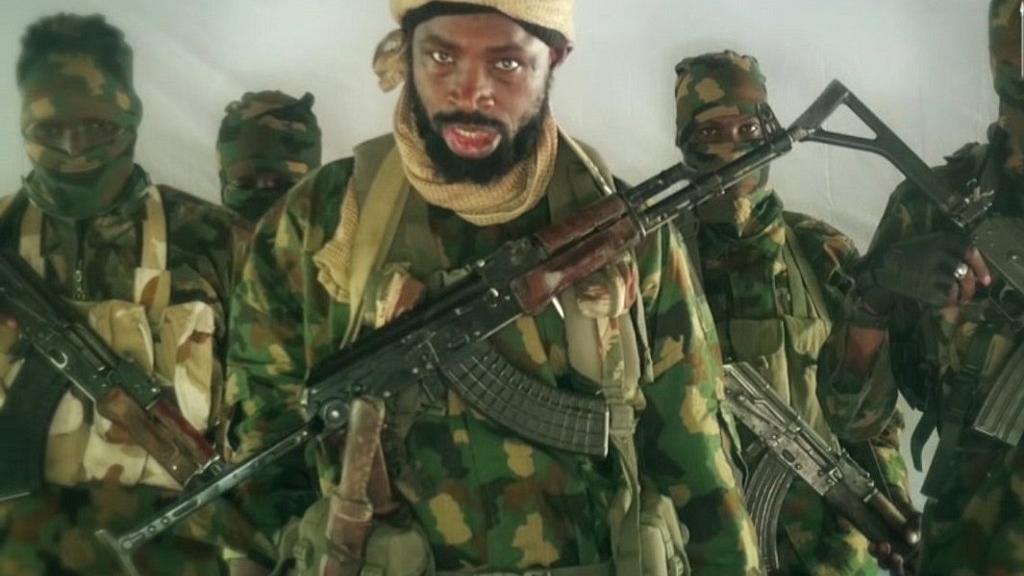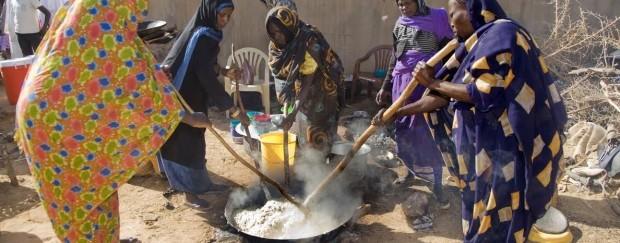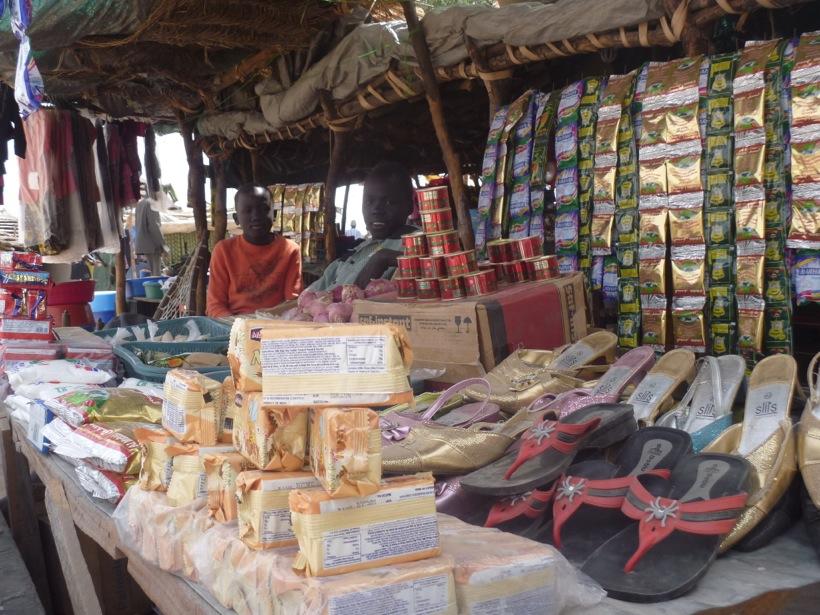Is Boko Haram’s notorious leader about to return from the dead again?

Two years ago, Islamic State expelled Shekau from its West Africa “province” for being too hard-line. Is it preparing to reverse course?

In November 2018, Abubakar Shekau appeared in a video for the first time since July.
Since 2009, when Boko Haram first launched its insurgency, the group’s most recognisable leader has been Abubakar Shekau. The notorious leader has featured in countless videos, boasting of his invincibility, taking credit for attacks, denouncing the West, and mocking the Nigerian government. His image has become so familiar that when his face looked a little different in some short and blurry 2013 videos, analysts immediately called it out as being the work of an imposter.
Shekau is also well-known for repeatedly defying news of his death. On multiple occasions since 2009, the Boko Haram leader has been reported to have been killed only to resurface shortly after.
For all his death-defying abilities, however, Shekau has arguably been as close to being down and out as ever recently. In the last two years, the militant has been expelled from Boko Haram’s main leadership and been left to lead his own splinter faction. He has lost much of his previous relevance and authority. When rumours have emerged that he is ill or dead more recently, some have suggested that he might as well be.
However, this may be set to change once again. In the last few months, there have been indications that Shekau is preparing for yet another resurrection. How this plays out could fundamentally shift the course of the insurgency going forwards.
How did Shekau fall from grace?
Boko Haram began its military campaign in 2009 after its former leader Mohammed Yusuf was killed in police custody. In the following years, it launched widespread attacks – mostly in North East Nigeria – that killed thousands of people and displaced millions.
In 2015, Shekau pledged allegiance to so-called Islamic State (IS), which officially renamed Boko Haram as the Islamic State in West Africa Province (ISWAP). This transition was coordinated by Abu Mus’ab al-Barnawi, formerly a Boko Haram spokesperson. Shekau was reportedly hesitant about the change as he feared al-Barnawi could leverage his closer relationship with IS to push him out.
This suspicion proved to be well-grounded. In August 2016, IS designated al-Barnawi as ISWAP’s leader. Shekau left to lead his own splinter group and accused al-Barnawi of being a “polytheist“. His rival hit back by publishing an entire book on the “tumour” Shekau had created through his excessive use of takfir (excommunication).
Because of this split, Boko Haram is currently comprised of two main factions. Al-Barnawi leads the bigger ISWAP, which has several thousand fighters and is based around Lake Chad. Shekau leads the smaller Jama’at Ahl al-sunna li-l-Da’wa wa-l-Jihad, which has over a thousand members, at least according to its videos which have shown around 1,000 men worshipping together at one site alone.
How do Boko Haram’s factions differ ideologically?
A key point of difference between ISWAP and Shekau’s faction is in how extremist they are and how they treat fellow Muslims. Under Shekau, Boko Haram frequently declared takfir on Muslims who it saw as legitimate targets of deadly attacks. The group kidnapped hundreds of Muslim girls and enslaved them. Although Shekau released many of the 250 Chibok schoolgirls captured in April 2014, his faction still has 15 of them and claims they do not want to leave.
This hard-line treatment of Muslims violated the orders of IS. This is why al-Barnawi and his allies had sought to distance themselves from Shekau just before he was replaced in 2016. Since then, ISWAP has generally respected theological guidance from IS not to kill Muslims in schools and markets or punish them for simply holding national ID cards. Working for the government or an international NGO or voting, however, is still deemed punishable by death.
Under al-Barnawi, the group has also followed directives only to enslave Christian women. This is why when ISWAP kidnapped over 100 schoolgirls in Dapchi, all of them were released apart from the one Christian girl. Early this year, ISWAP separately seized a Christian UNICEF worker. It also executed two female Muslim ICRC workers, accusing them of collaborating with “Christian” NGOs that rely on the Nigerian military for security. Although these killings seem to contradict ISWAP’s self-described ““hearts and minds” approach, it was following IS directives to the letter. In fact, in a video of one of the executions, the militant responsible claimed to be acting on the direct orders of IS.
[Losing my religion? The backlash to Boko Haram in northern Nigeria]
What role does Islamic State play in Boko Haram’s actions?
The extent of IS control over ISWAP can be seen in other ways too. In September 2018, for instance, ISWAP killed the influential commander Mamman Nur and his loyalists on apparent orders from IS. Nur was accused of benefiting from side-deals around the release of the Dapchi girls. It is notable that ISWAP carried out these orders despite the fact that Nur and al-Barnawi previously worked together closely. This might suggest that while al-Barnawi remains the group’s undisputed leader, he has to defer some authority to more hard-line commanders who are in more frequent communication with IS.
IS also has a growing influence on ISWAP’s operations. Its West African “province” has developed suicide vehicle-borne improvised explosive devices (SVBIEDs), for example, which is likely the result of a transfer of tactics from IS. Meanwhile, ISWAP’s recent string of successful barracks raids drew heavily on tactical advice from IS. This author learned from a visit to Borno in November 2018 that, more than anytime previously, ISWAP’s decisions around attacks are closely reported through a chain-of-command to the leaders of IS, which is why the raids have resembled IS campaigns.
The fact that IS had claimed an October 2018 barracks attack in Gashigar, Borno State, within 24 hours also indicates that communications between ISWAP and IS are as immediate as ever.
Where does this leave Shekau?
When Shekau was expelled from ISWAP, it was for being too hard-line. Two years later, however, ISWAP has undergone its own extremist shift as demonstrated by its recent executions of Muslim NGO workers and commander Nur. If the leaders behind this change of direction – individuals the Multinational Joint Task Force (MNTJF) even referred to as “Shekau type terrorists” – are ascendant in ISWAP, then Shekau might have a glimmer of hope of returning to the insurgency’s core. IS has always demanded unity in its provinces.
In fact, there have already been some signs of possible coordination between ISWAP and Shekau’s faction. The two groups have agreed on a mutual ceasefire, ending previously deadly infighting that reportedly led to the deaths of 400 fighters. Meanwhile, Shekau’s faction recently led raids on the outskirts of Maiduguri, which opened up the countryside for further ISWAP attacks.
Shekau’s faction also just introduced a new media agency, al-Tibyan, this November, which released the first video of the leader since July. The same day, the group released photos of fighters carrying out shari’a punishments, a recording of a barracks raid in Borno, and a video of a commander denouncing democracy. All these releases used the exact same media templates as IS. Moreover, the al-Tibyan logo is so similar to that of the IS al-Hayat media agency that it begs the question of whether pro-Shekauj IS members are providing media support to Shekau’s faction as they did prior to the 2015 pledge. Another clue could be found in the fact that one of the videos was uploaded by an “Abu Jandal al-Iraqi”, which could be an IS member in Iraq.
Shekau, for his part, never renounced his pledge of allegiance to IS leader Abubakar al-Baghdadi. This may have left open the possibility of reconciliation. The video of the barracks raid could be Shekau’s way of demonstrating his faction’s worthiness to be reinstated.
At the same time, however, it should be noted that any possible alliance with Shekau risks being short-lived. The mercurial leader has proven himself incapable of following orders in the past and after a half-year hiatus he redeployed his strategy of using female “suicide” bombers in November, which goes against IS policy.
What is the significance of other Islamist militant groups operating in the region?
Of the other Islamist militant groups operating in West Africa, the most notable currently is Jama’at Nasr al-Islam wal Muslimin (JNIM). This is al-Qaeda’s Mali-based affiliate, which has boasted increased military successes and media output recently.
In November, the group’s leader Muhammed Kouffa, who has since reportedly been killed, called on Fulanis in West Africa, including in Nigeria and Cameroon, to unite with JNIM for the first time. It is possible therefore that part of the IS drive to reinsert itself in Nigeria is aimed at warding off recruitment efforts from al-Qaeda. IS may be particularly concerned given that many members of its Sahelian entity, IS in the Greater Sahara, previously surrendered to the Malian government or were subsumed into JNIM.
What would a reunion between Shekau and ISWAP mean?
There are at least four ways in which a rapprochement between Boko Haram’s factions could be immediately significant.
Firstly, it could make negotiation with the jihadists in Nigeria more difficult as they all would be reporting to IS. Secondly, it could lead to a more violent ISWAP than we have seen in the past two years as hardliners cooperate with Shekau. Thirdly, it could provide a boost for the insurgents and lead to an expansion of their areas of operations and increase in tactical sophistication. And fourthly, it could affect the February 2019 general elections by undermining President Muhammadu Buhari’s claims to have ended the insurgency.






Several interesting factors bear review.
Nurs apparent demise coincided with the resumption of female PBIEDs in Nigeria and then Cameroun. This tactic is unique to Shekau, yet the devices have been poorly constructed and several attackers surrendered or fled
BOko Haram ISWAPs successful run of attacks reached their first peak as the October harvest came in, then they were heavily beaten at Damasak, following that Shekau suddenly got an influx of vehicles and fighters to attack Dalori and other areas and began harassing civilians. Where did this influx of vehicles, fuel, fighters and weapons come from?
Shekau has begun using Daesh templates and sources to upload well produced propaganda.
All of this could indicate a battlefield détente if not formal alliance between the Shekau and al Barnawi factions.
Nigeria’s failure to destroy either faction during the split looks very much like it is coming back to haunt them, as both factions attacking constantly and almost simultaneously completely defeats the Armys use of interior lines to shuttle men from one besieged front to another. By all accounts logistics has broken down once again and we are back in 2015.
As per JNIM, reports of Fulani speaking bandits from Mali who have graduated from cattle rustling, rape, extortion, kidnap for ransom to proselytising and administering Sharia punishments in Sokoto and Zamfara should give pause for thought
comrades communique from Julu Mandingo to Julu Ubuntu. I know many will dislike this comment but I ask you to judge it on its truthfulness. If nothing else Shekau have proven that Nigerian government plus military despite all their supposed withal is incompetent thus, not worthy of title of leader of Ubuntu Africa.
Moreover, Shekau have proven Africa is no place for Old Men or Selfish of Ignorant to lead. This is not to say I view present leaders of Nigerian government as possessing all these negative characteristics.
Very much sincere,
Henry Author(people of books) Price Jr. aka Obediah Ubuntu IL-Khan aka Kankan aka Gue.
comrades communique from Julu Mandingo to Julu Ubuntu. Shekau have proven that both government of Nigeria plus military of Nigeria despite their withal are incompetent plus not worthy of title of leader of Ubuntu African nations. Moreover, Shekau have proven that in today’s fast evolving world Africa is no place for old Men to lead however, Old Men may make good advisers to young, unselfish, non corrupt plus intelligent leaders who should lead African nations.
Very much sincere,
Henry Author(people of books) Price Jr. aka Obediah Ubuntu IL-Khan aka Kankan aka Gue.
Have been catching up with the fight against Boko Haram recently. Reports are not much different to this one, showing the incompetence of the forces involved in the fight against the group, and persistence of the terrorism because of it. If this goes on for much longer, I fear the Nigerian state may lose the North entirely.
choloriquine https://chloroquineorigin.com/# hydroxychlor side effects
cialis price https://cialiswithdapoxetine.com/